Money Lessons In Children’s Books
by A.C. Elliott
Before we traded in our Konigsburg for Kafka and our Dahl for Dostoevsky, the authors of our childhood laced their stories of mystery and imagination with advice on money and finances. Money was something in this stories, but not everything.
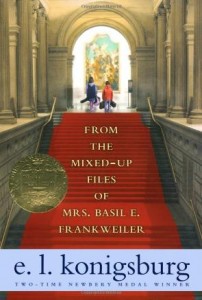
From the Mixed Up Files of Mrs. Basil E. Frankweiler
Lesson: Be resourceful and borrow — if you must.
Consider the classic tome from the great and recently deceased E.L. Konigsburg. In it, young Claudia Kincaid is confronted early on with the consequences of being a compulsive over-spender. Almost as soon as she decides to run away to the comforts of the Met, she realizes she can’t. She’s broke. Solution? She does what we all do: makes nice with her little brother Jamie (Dad) — who is responsible and likes to save his money — and convinces him (Dad) to go with her (finance her big, New York City lifestyle). She’s also not above fishing for change in the museum fountain, which is great, for obvious reasons..
Once Jamie agrees to join forces, they run away with his $24.43. (How many of us, upon first read, thought that was a ton of money?) But here’s a dark and ugly truth about Jamie’s fortune. He got it cheating at the card game War on the bus with his friends. Somewhere in there is a lesson about dishonest forms of accumulating wealth. But we like Jamie and assume he won’t grow up to exist on ponzi schemes, insider trading, gambling, or whatever else those fat cats do.
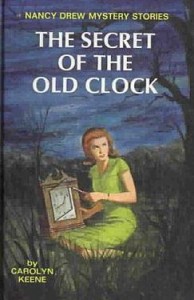
The Secret of the Old Clock
Lesson: Don’t have two wills when one will do.
The entire plot of Carolyn Keene’s The Secret of the Old Clock (THE Nancy Drew book of Nancy Drew books) centers around elderly aunts who were swindled out of their cousin’s will, and thus survive by selling off old jewelry and furniture. Unfortunately, they are also the caretakers of young Judy — a bright girl, who probably won’t be able to attend college because of her aunts’ financial misfortune. Nancy, ever the industrious problem solver, suggests scholarships and financial aid before tracking down the real will. Granted, the whole thing could have been avoided if the old cousin had just been a lot smarter about everything. But at least we have Nancy.
But what do legal wills mean to fifth-grade girls? Close to nothing, except that they need to be in order by the time we die. Thanks, Carolyn Keene.
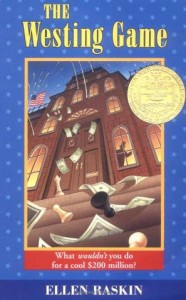
The Westing Game
Lesson: Lots of money can, on certain occasions, make people do bad things.
Wills and testaments probably continued to hold little meaning until we picked up Ellen Raskin’s 1979 Newberry-winner, The Westing Game. In this one, 16 possible heirs are thrust into a game and given clues to figure out who is the real heir to Sam Westing’s $200 million fortune. But here, in a book almost completely about money, characters are defined by their attitudes toward wealth. Raskin gives her young audience what is likely their first look at how, and to what extent, money changes people. It is perhaps, a bit much to suggest our 11-year-old souls had the depth to read that much into Raskin’s life lessons here — lots of money makes you do things you’ll regret! — but who among us wasn’t fascinated by Turtle Wexler’s love of the stock market? Like Konigsburg’s Jamie, young Turtle Wexler inspired the budding capitalist in all of us (though we may not have known it at the time).
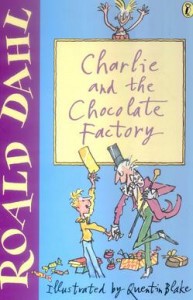
Charlie and the Chocolate Factory
Lesson: Take a chance!
Yes, Roald Dahl’s Charlie and the Chocolate Factory has lessons about money, too. For starters, sometimes a little gambling pays off now and then, right? When Charlie stumbles across a dollar bill lying in the street, his life is changed forever. Why? Because he, in full faith and knowledge of his family’s poverty, took part of it and bought a chocolate bar. He did this, knowing there was about a one-in-a-million chances it would pay off. Spoiler: it did. Call it irresponsible, but that one gamble, er, investment, literally became his ticket to a lifetime of wealth and riches. Well done, Charlie!
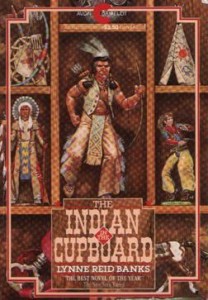
The Indian in the Cupboard
Lesson: Some of the best things in life are free
Even the absence of money taught us how to value a good deal. In Lynne Reid Banks’ The Indian In the Cupboard, young Omri is given a used cupboard, found in an alley, in the very first chapter by his older brother. (The brother’s pocket money, we find out, had been stopped due to an “unfortunate accident” involving his father’s bike). But that used cupboard turned out to be THE cupboard, capable of bringing a plastic toy indian to life. Something that cost nothing turned out to be everything.
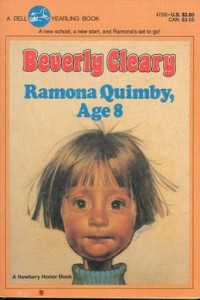
Ramona Quimby, Age 8
Lesson: There’s more to life than money. Period.
Which brings us to an eraser. A cheap, pink eraser given to one Ramona Quimby, age 8. In the sixth book of the Ramona Quimby series, author Beverly Cleary introduces some tough financial times for the Quimby family that, to our young eyes, probably seemed like no big deal. Looking back though, wow! Ramona’s father decides to go back to college to become an art teacher, and he maintains a part-time job at the supermarket. That’s got to put a financial strain on the family. Yet none of this seems to matter to Ramona. While she is aware of the family’s money problems, it’s hardly the center of her world. Thus bringing us full circle to where we started: money is something, but not everything.

It is comforting, revisiting these pages from our past and remembering a time when we were told — and believed — that good people do well and bad people don’t. There’s a reason Charlie Bucket gets to inherit the factory and Turtle Wexler ultimately solves the mystery. There’s a reason Romana Quimby can declare she is “winning at growing up” (in Ramona Forever). How many of us can say that now? Mrs. Frankweiler gets it. She’s old and has lots of money, but she doesn’t care. She was just searching for some kind happiness. Why else would she change her will at the end? Lucky for Claudia and Jamie they came around at just the right time.
And what about us? All I know is that somewhere between the Cleary and the Chekhov something changed; I’m still trying to figure out what.
A.C. lives in Washington, D.C.
Support The Billfold
The Billfold continues to exist thanks to support from our readers. Help us continue to do our work by making a monthly pledge on Patreon or a one-time-only contribution through PayPal.
Comments